TEDxLeuvenSalon - Intelligence: Artificial or Human?
TEDxLeuvenSalon - Intelligence: Artificial or Human?
For holders of tickets of previous (canceled) dates: in order to enter you will need your Eventbrite ticket for the 11 March 2022 edition, which were
recently sent to you if you claimed your ticket. Should you not have claimed your ticket you can contact us and we will try to help you:
contact@tedxleuven.com
Humans are remarkable beings. Thanks to their abstract reasoning skills, complex societies and opposable thumbs, they have become the
undisputable apex predator and have thoroughly reshaped the face of this planet. We like to think of ourselves as intelligent, rational beings.
However, this idea is often disproven. We are terrible at risk assessment, have numerous biases and are susceptible to conspiracy theories.
It is hard to convince us ‘rational’ beings, often even with solid evidence.
On to the machines then. They are free of emotional ties and rely exclusively on cold, hard data. Surely they will succeed where we can’t? Indeed,
frequently, artificial intelligence can outperform trained experts at certain tasks. Yet they currently lack some defining human traits, like empathy and
creativity. So what is it that makes a being ‘intelligent’? Can we teach a computer morality and creativity?
Join us in our search for answers (and more questions) in this Salon!
Keep a close eye on our Facebook, Twitter pages or subscribe to our mailing list to stay up to date!
Practical details
- Location: Centraal Auditorium Gasthuisberg, Herestraat 49, 3000 Leuven
- Date: 11/03/2022
- Doors open: 18:30
- By bike: bicycle parking is available near the entrance of “Onderwijs & Navorsing” 1
- With public transport: The closest bus stop is “Leuven Gasthuisberg Campus”. The stops “Leuven Gasthuisberg Kliniek” and
“Heverlee Berg Tabor” are within approximately 10 minutes walking distance. - By car
- After 18u, you can access the parking “Onderwijs en Navorsing” by entering the code 7474# in the keypad near the barrier (don’t forget the ‘#’ symbol).
You can reach this parking by following the arrows “Parking Onderwijs en Navorsing”. - Alternatively, you can park on the visitors parking of the UZ Leuven. Note that this is a paid parking.
CST, facemasks and other COVID rules
A Covid Safe Ticket (CST) is no longer required. Masks are still required, but only in the entry hall (as it is technically part of the university hospital).In the auditorium you can choose whether or not you will be wearing a mask. Our volunteers will all be wearing a mask for your and their safety.
We do ask that you leave space between your group and the next one on the same row.
Program
- Gilles De Meester: “The Evolution of Animal Cognition”
- Livia De Picker: “Salience: a Psychiatrist’s Story About What Matters, and What Happens When Everything or Nothing Does
- Frank van Overwalle: “The Social Brain”
- Margriet Sitskoorn: “Homo Sapiens Verus: Present Brain Future World”
- Andrea Renda: “Creativity, diversity and morality in the age of AI”
- Radu Surdeanu: “AI and Next Level Humanity, the missing link”
- Thomas Winters: “The limit of technology: creating a TEDx talk ?”
Partner activities
Our partners will be present at the event in person. Be sure to talk to them about how they use AI, and what exiting careers paths they offer!You will be able to meet our partners at their booths before, during and after the event.
Deloitte will also be organizing a student workshop about AI before the event. This workshop takes place on the 11th of March as well,
from 16:00 to 17:00. The workshop is free of charge, but registration is required. To find out more about the workshop and register for it,
click here .
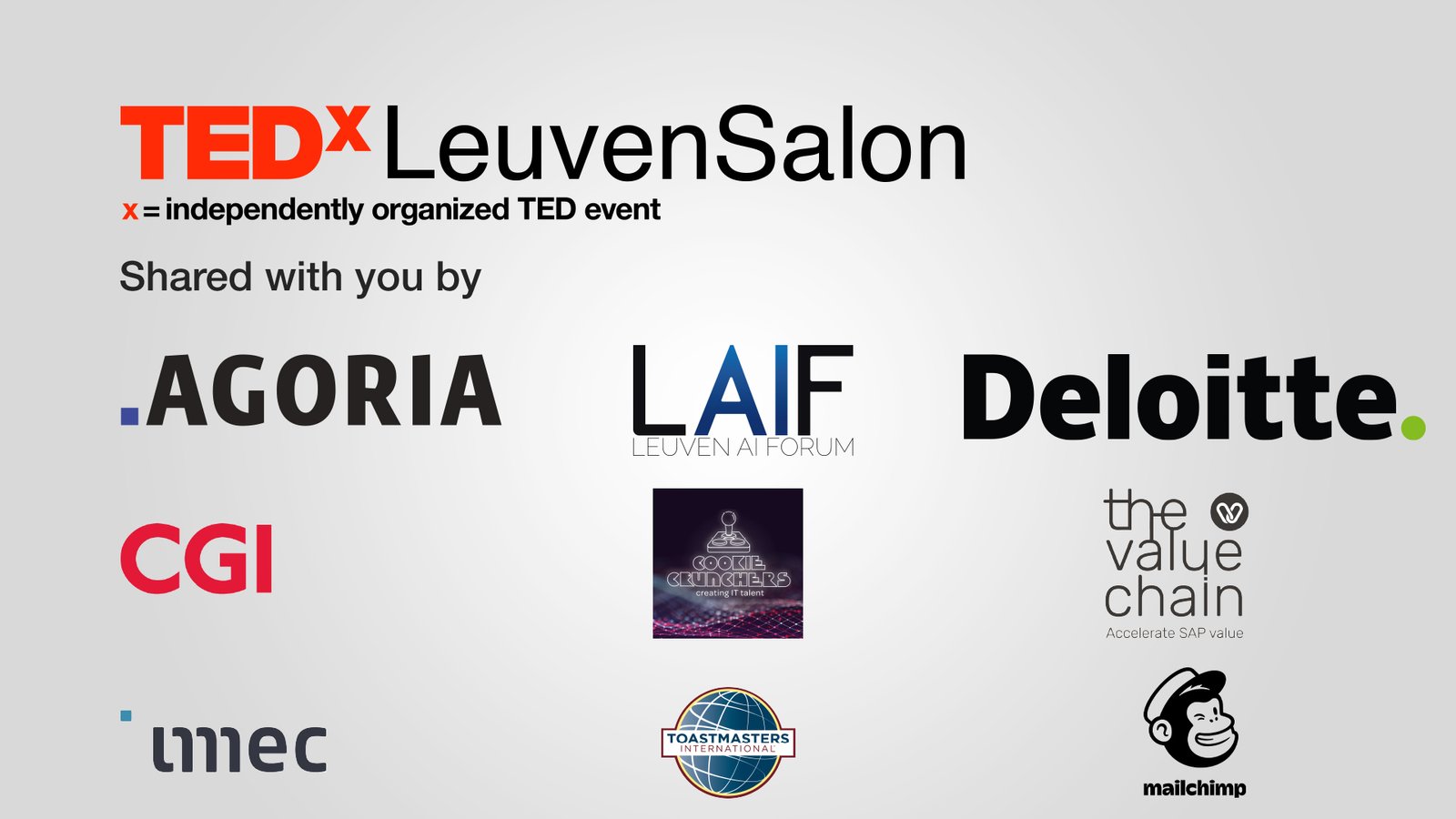
Speakers
Gilles De Meester
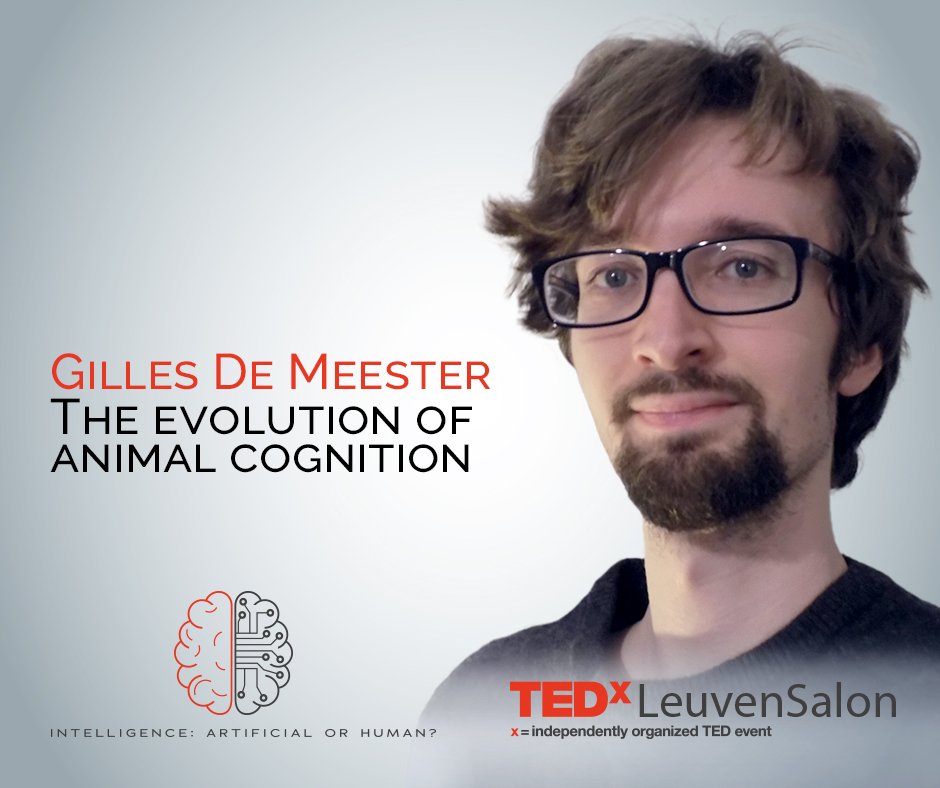
exists. By studying this variation, biologists have tried to understand why, how and when cognition evolves within the animal kingdom, although much
remains to be learned. Do animals (always) benefit from being able to learn? What are the costs and benefits of having a large brain? Are smart
animals more attractive? Where else in the animal kingdom did large brains arise and how? Answering these questions is essential to unravel the
evolution of animal cognition.
Gilles De Meester is an FWO fellow and PhD student in the Functional Morphology Group at the University of Antwerp. He is interested in the evolution
of animal cognition, especially in relation to environmental complexity. The central goal of his PhD is to study how cognitive abilities may be linked to the
fitness of an individual and whether this link may differ between environments, using lizards as a study system.
Livia De Picker
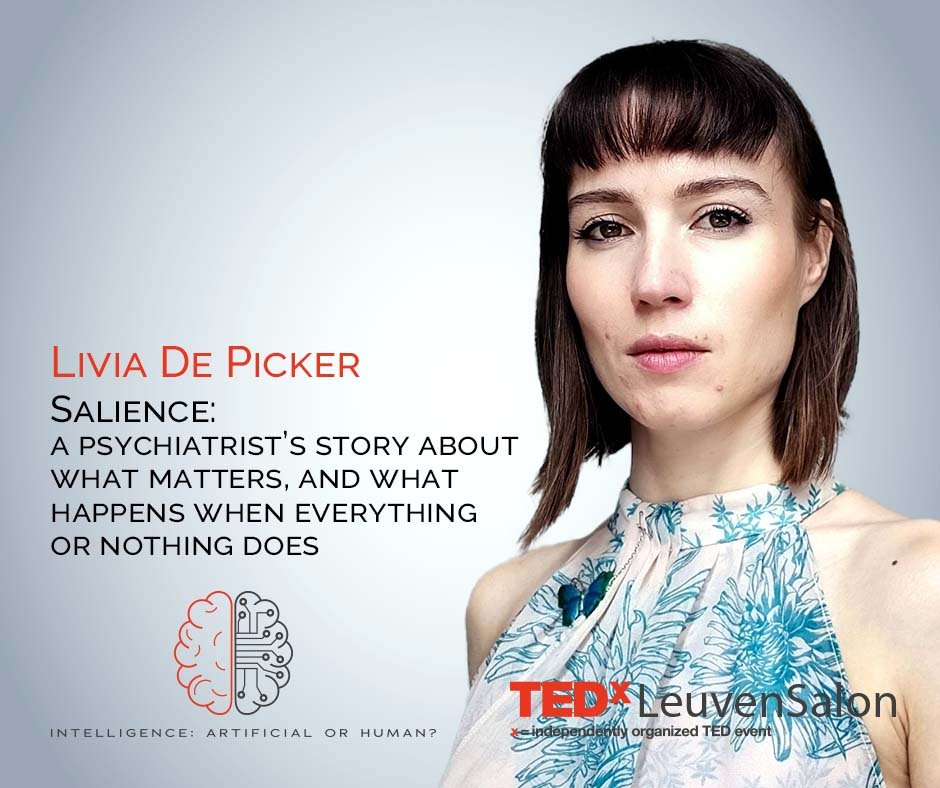
information reaching our senses at any given moment. The capacity to attach a particular importance to certain stimuli, crucial to the survival of our
species, was developed and enhanced throughout our entire evolutionary history, and remains one of the last unique features of human intelligence
which A.I. struggles to replicate. In psychiatry, distinct clinical problems emerge when something goes wrong in this system, providing us with unique
insights into the mechanisms involved. In patients with schizophrenia – one of the most severe and chronic mental disorders – dopaminergic neurons
in the limbic area of the brain become dysregulated, leading to a disruption in the mechanism which attributes importance or meaning to certain stimuli.
As it becomes harder and harder to differentiate meaningful from non-meaningful stimuli, delusional ideas can start to take root and patients become
increasingly detached from reality during a psychotic break. Yet an even worse situation occurs when the salience system is blocked, and everything
in life becomes bleak.
Dr. Livia de Picker is a psychiatrist & postdoc at the university of Antwerp. By combining clinical work and academic research in psychiatry, her aim
is to improve mental health care patients’ quality of life through a synthesis of mental health research, education and care.
Frank Van Overwalle
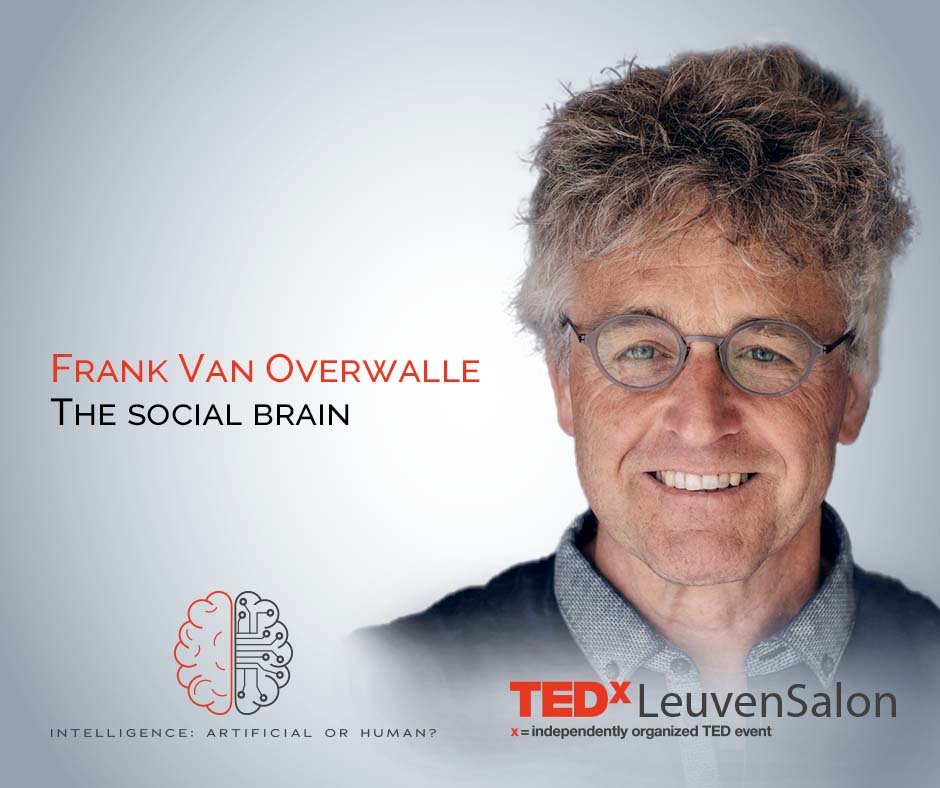
threats. The pressure to be in a group has created the social brain and the consciousness. Still, things can go wrong. The downside of people
protecting their own group is that they exclude and judge others outside of it. A recently discovered part of the human brain, the small brain, can
be partially responsible for our non-rational, subconscious prejudices and other deviations in social behavior.
Frank Van Overwalle teaches at the faculty of Psychology of the Vrije Universiteit Brussel (VUB). He got his doctorate in 1987 with the topic
“Causes for the success and failures of first year students”. Afterwards, he studied as a postdoc at the University of California and became a
professor at the VUB. He applied his and others’ research for the development of neural network models of social cognition. In 2005, he went on
to research social neurosciences with “real” brains. His work earned him many scholarships from his university and the
Research Foundation - Flanders (FWO).
Margriet Sitskoorn
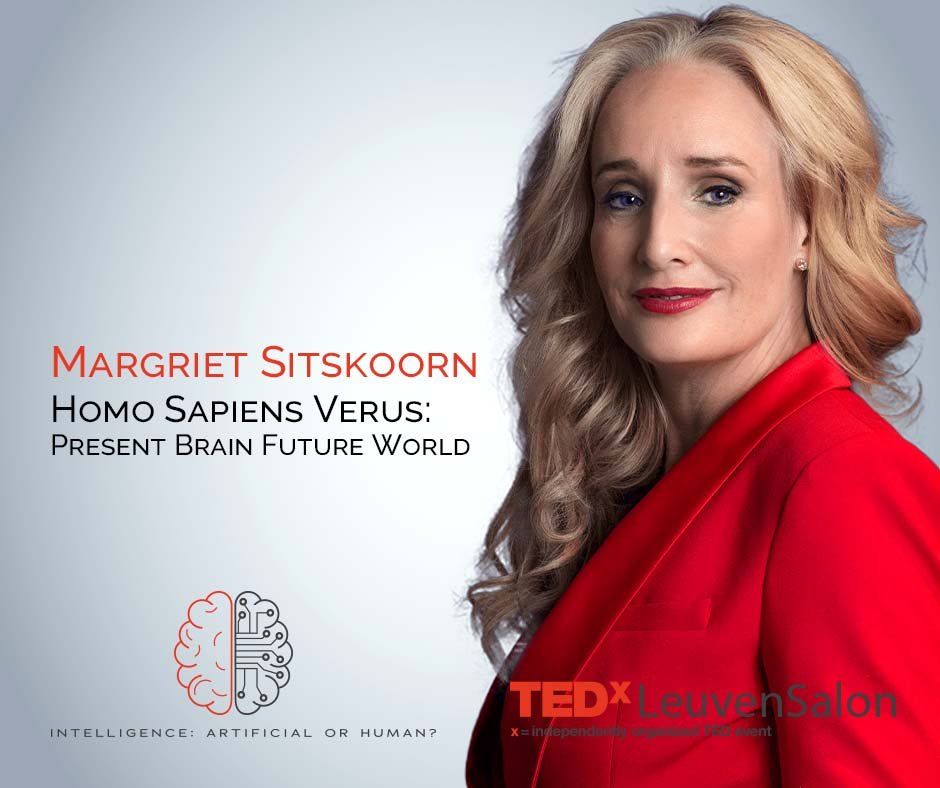
still inflict so much suffering on ourselves, others and the environment. Is there perhaps, despite all our progress something lacking in our
development? And if so, what is lacking and will we be able to develop it? Subjects like crystalized and fluid intelligence will be discussed in this
lecture, and insights will be provided with regard to how the combination of neuroplasticity, a different environment and choices, can guide us
towards the homo sapiens verus; a genuine human being who is truly wise.
Andrea Renda
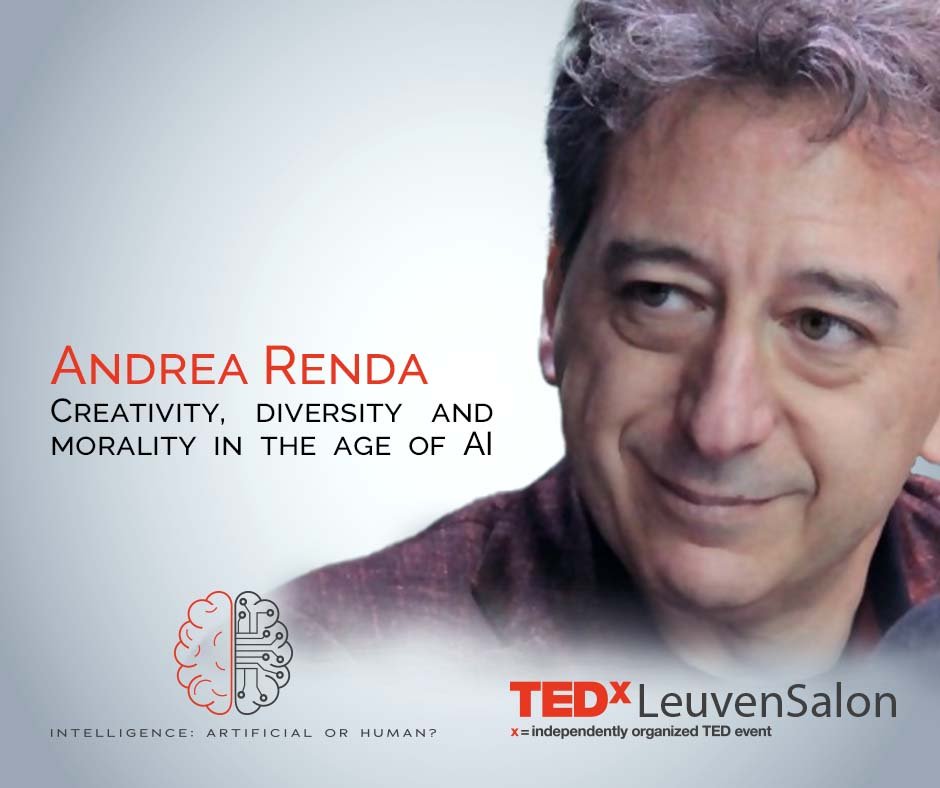
aspects of AI? And how will the EU deploy its international efforts to steer the world towards AI for good?
Andrea Renda is Professor of Digital Innovation at the College of Europe in Bruges; Head of Global governance, Regulation, Innovation and Digital
Economy (GRID) at CEPS in Brussels, and a Member of the EU High Level Expert Group on Artificial Intelligence.
Radu Surdeanu
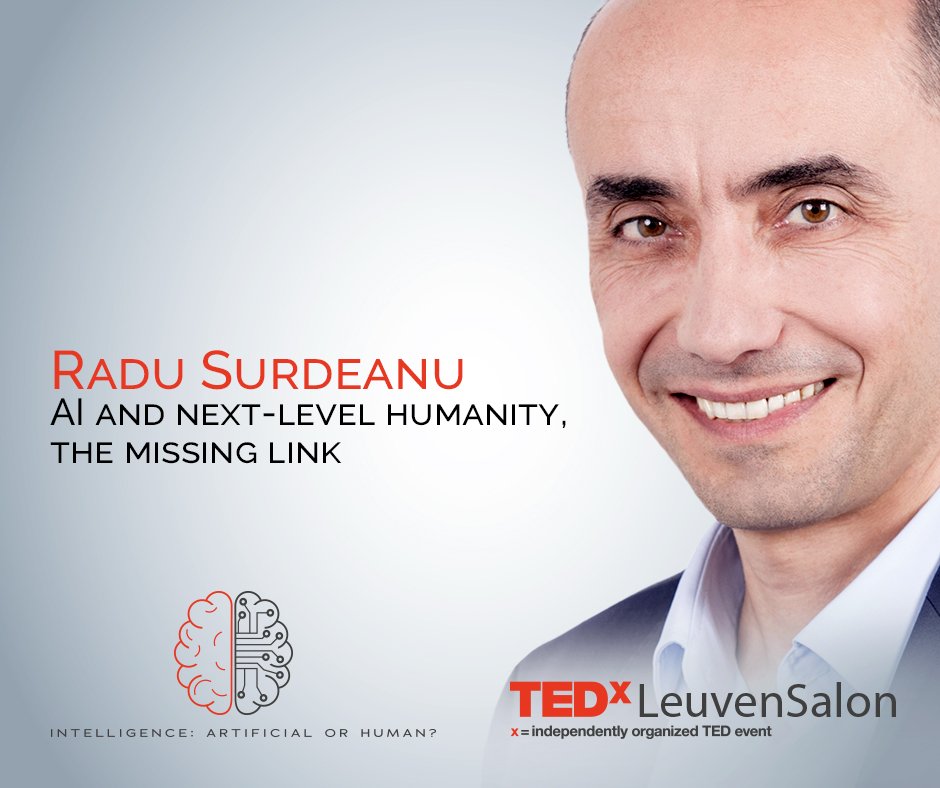
hi-tech society we live in. Could we replace the fear for a dystopian AI-driven future, where our jobs will disappear? Where people seem to become
increasingly irrelevant? Can we find a common, human story which - intertwined with AI - will enable us to grow to reach our full potential? A future
where we have more time to spend with our loved ones and find meaning? That choice is ours, that choice is now.
Educated as a physicist and with experience in various large multinationals, Radu is passionate about technologies of the future, specifically on the
impact of Artificial Intelligence on society. As an active Happonomist and Zen practitioner, Radu is an advocate of a future where humanity will reach
the next level, with AI and spirituality interconnected, for the well-being of all.
Thomas Winters
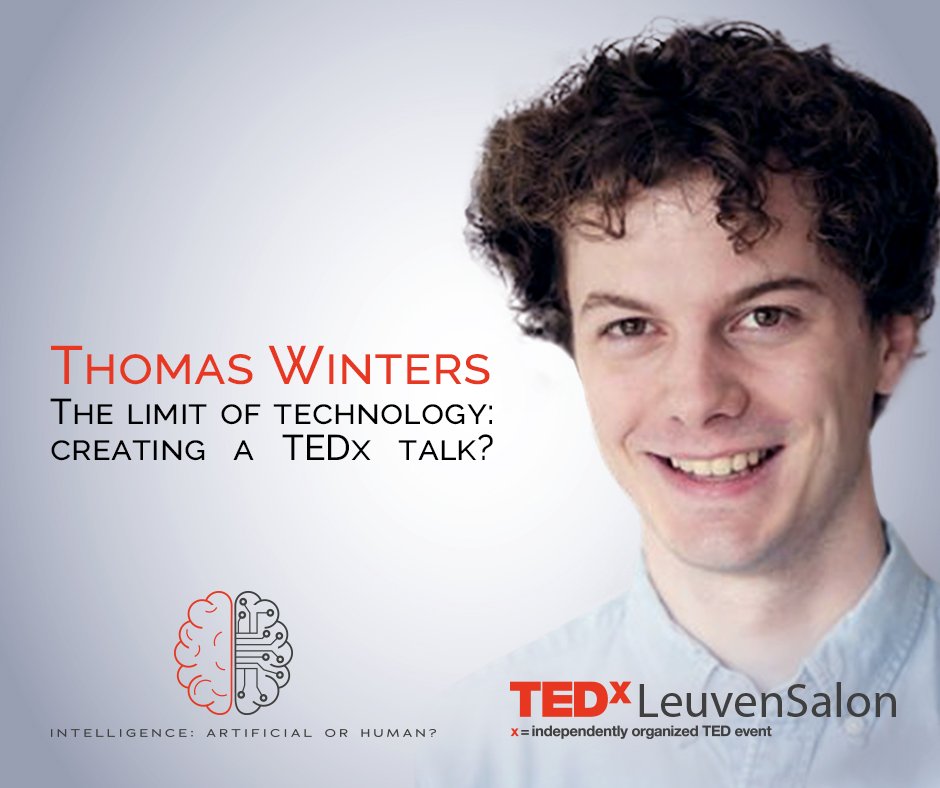
speculate that the limit might be reaching human-level intelligence. Others point to expressing creativity or understanding humor as being the
insurmountable threshold. But does that mean an algorithm could never write its own TEDx talk? Let’s find out!
Thomas Winters is an FWO fellow and Machine Learning PhD student at the KU Leuven DTAI research group, researching computational creativity
with probabilistic models. His research has mostly been about automatic humor generation, implementing AI systems that perform improvisational
theatre and developing interpretable creative artificial intelligence frameworks.

